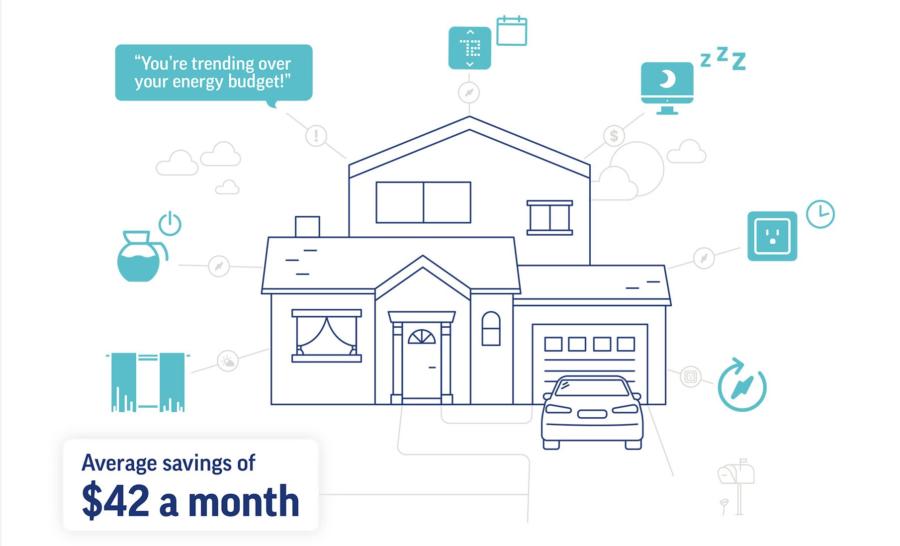
As we all work together to slow the spread of COVID-19, many of us are at home and using more energy. As a result, you may be looking for different ways to manage your monthly energy bill. With these six tips, you have the power to control your energy usage – stopping that surprise high bill by reducing your energy bill by 20% or more.
#1 – Set a monthly budget and stay on track [$10 per month]
Prevent energy bill surprises with the free DTE Insight app. Set up a monthly budget and receive alerts for when you’re trending over or have exceeded your monthly energy budget. Then take action to get your budget back on track and save.
#2 Set a thermostat schedule [$5 per month]
HVAC costs can make up to 50% of your energy bill. Have your thermostat automatically dial down a few degrees while sleeping to lower your heating and cooling costs by 10% or more. Find thermostats and energy efficient items on the DTE Marketplace with an instant discount at check-out to save more!
#3 Use your curtains to cut costs [$5 per month]
Open curtains during the day to light and naturally heat your home. Plus, a little sunshine can help lift your spirts when working from home. At night however, close blinds, curtains and shades to reduce heat loss and HVAC costs.
#4 Turn off the coffee pot [$9 per month]
As you keep caffeinated working from home, remember a coffee pot can consume 1,500 watts to heat up water – that’s about 20 cents every hour to operate. By simply turning off the coffee pot when it’s not needed can add up to big savings.
#5 Use the sleep mode on your computer [$3 per month]
If you are working from home, one great way to reduce energy waste is by putting your computer in sleep-mode when it’s not in use. The computer and office equipment continues to use energy, even when not in use. When you are done for the day, power down, or plug your devices into a power strip for extra savings and ease.
#6 Keep track of your always-on energy usage [$10 per month]
Around 20% of your energy bill comes from devices that never turn off. A gaming system alone can add over $19 a month. Use a power strip or shut off electronics at the end of the day and you’ll see savings.
*Estimated energy savings are based on the average electric bill for Michigan households. Sources: U.S. Energy Information Administration; McKinsey & Company: Sizing the Potential of Behavioral Energy-Efficiency Initiatives in the U.S. Residential Market